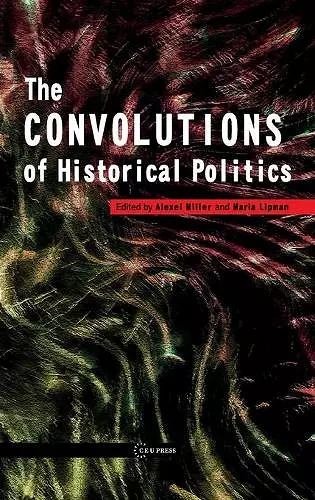The Convolutions of Historical Politics
Alexei Miller editor Maria Lipman editor
Format:Hardback
Publisher:Central European University Press
Published:10th Aug '12
Currently unavailable, and unfortunately no date known when it will be back

Thirteen essays by scholars from seven countries discuss the political use and abuse of history in the recent decades with particular focus on Central and Eastern Europe (Hungary, Poland, Estonia, Moldova, Ukraine, Russia as case studies), but also includes articles on Germany, Japan and Turkey, which provide a much needed comparative dimension. The main focus is on new conditions of political utilization of history in post-communist context, which is characterized by lack of censorship and political pluralism. The phenomenon of history politics became extremely visible in Central and Eastern Europe in the past decade, and remains central for political agenda in many countries of the regions. Each essay is a case study contributing to the knowledge about collective memory and political use of history, offering a new theoretical twist. The studies look at actors (from political parties to individual historians), institutions (museums, Institutes of National remembrance, special political commissions), methods, political rationale and motivations behind this phenomenon.
"This collection of essays of great interest to historians and political scientists because of its efforts to examine 'actors, institutions and political strategies involved in political use/abuse of historical issues and collective memory'. Readers learn in particular about the efforts of states with varying degrees of democratic pluralism to go beyond simple intervention in textbook writing. This volume is guaranteed to spur specialists and general readers alike to reflect on the ways in which history is mobilized to serve different ends as well as on the limits of its manipulation." * Russian Review *
"While not all the pieces in this edited work directly challenge the common causal presumption that mnemonic narratives precede their political utilisation, the idea nevertheless constitutes a powerful thematic touchstone. In this paradigm elites become strategic creators of historical discourse, and not merely consumers of its organic unfolding. However, allowing that he above constitutes an accurate portrayal of what has been taking place throughout the erstwhile Warsaw Pact and Soviet Bloc states since the early to mid-2000s, the question of why Janus-faced polictics rose to prominence precisely when they did remains. One can only hope that this fine work portends a rising tide of similar efforts that will consider seriously the complex dynamics behind the rise to promincence of historical politics in the postcommunist milieu." * Europe-Asia Studies *
ISBN: 9786155225154
Dimensions: unknown
Weight: unknown
362 pages